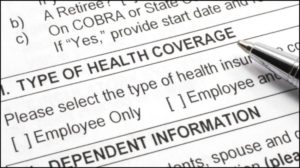 Although the promise Donald Trump made on the campaign trail to pull Obamacare off the nation’s healthcare shelves seemed to resonate for many Americans dissatisfied with the Affordable Care Act (ACA), now that the promise is on the verge of becoming reality, the polls are showing what you might call repeal remorse in many.
Although the promise Donald Trump made on the campaign trail to pull Obamacare off the nation’s healthcare shelves seemed to resonate for many Americans dissatisfied with the Affordable Care Act (ACA), now that the promise is on the verge of becoming reality, the polls are showing what you might call repeal remorse in many.
According to results of a Kaiser Health Tracking Poll released late last month, more people see the ACA as favorable than have in over 60 similar preceding polls conducted since 2010. Forty-eight percent of respondents expressed a “favorable opinion” toward the federal healthcare law, while forty-two percent hold an unfavorable opinion. The upswing to more favorable than unfavorable is partly explained by a shift in the minds of independent voters (half of whom now see the ACA as a positive vehicle overall).
And Kaiser’s isn’t the only poll that reveals this shift. A February national Pew Research Center survey showed that 54% of those polled approve of the ACA, while 43% disapprove.
Constituents demand answers of legislators
The sea change from overwhelmingly negative perception (critics citing steadily increasing premiums and prohibitively high deductibles) to the majority wanting to keep at least some aspect of the ACA isn’t only reflected in the numbers: many lawmakers were surprised to find angry constituents in their home towns during last month’s recess.
One of the most pressing concerns voiced in town hall meetings across the country—even in areas where Trump won the election by a landslide—was fear about what the Republican repeal and replacement of Obamacare would mean in the practical sense. And the fact that there have been no real specifics released hasn’t helped allay worries…nor has Trump’s recent admission that healthcare is “so complicated.”
An individual example of that sentiment is seen in California resident Michael Bilodeau, who attended two town halls held by California Republican Rep. Tom McClintock. “My story thus far has been one who has benefited from the system,” Bilodeau told Kaiser Health News. “We are able to see our local doctor, who we like. And our premiums have been, I would say, stable.”
Bilodeau and his wife own a small business and are insured through Covered California, the state’s marketplace.
“One of the Republicans’ major arguments is that the ACA brought disruption to people’s health care,” Bilodeau added. “It feels like we’re headed toward another disruption.”
Potentially, 20 million Americans will be impacted by ACA repeal
A whopping 20 million uninsured people nationwide gained healthcare coverage thanks to the ACA. Should those individuals suddenly find themselves uninsured once more, it could prove disastrous to those affected, but also to Republicans overall if predictions of public backlash prove accurate.
For the past few weeks, Trump has promised rolling out a detailed plan that would reveal the ACA substitute offering “insurance for everybody.” That plan is still forthcoming. And when he addressed Congress on February 28th, he stated that a new healthcare law “should ensure that Americans with preexisting conditions have access to coverage.”
Still, those verbal reassurances alone don’t seem to be staying the flood of fresh concern, especially in light of a draft of a proposed Republican replacement of the ACA that included a substantial reduction in federal subsidies (but not enough of a reduction to appease conservatives in the House). Republicans in Congress said last week that they were working on “the best way to build a consensus to pass a bill to gut Obamacare.”
Debate has entered “the public conversation”
Simon Haeder is a political science professor and specialist on health policy at West Virginia University. “Now that we have this whole debate on replacing, repealing, repairing — whatever you want to call it — more and more of this information is coming out on what the ACA does and how it’s benefited people,” he told Kaiser Health News. “Now that’s entering the public conversation.”
This blog post is provided for educational purposes only and is not offered as, and should not be relied on as, legal advice. Any individual or entity reading this information should consult an attorney for their particular situation. For more information/questions regarding any legal matters, please email [email protected] or call 310.203.2800.